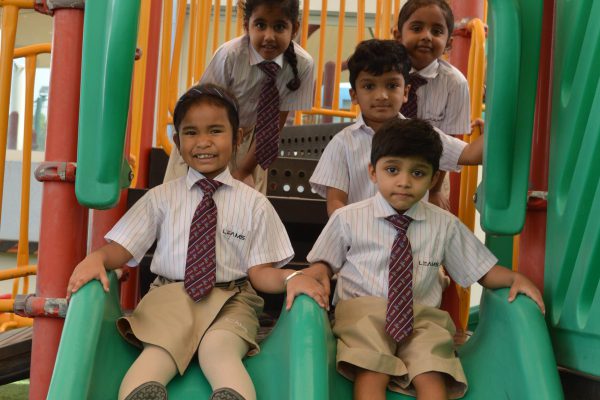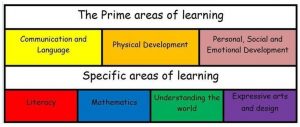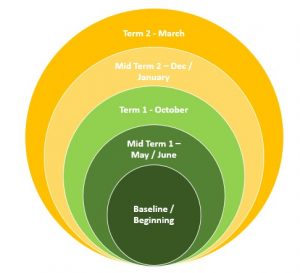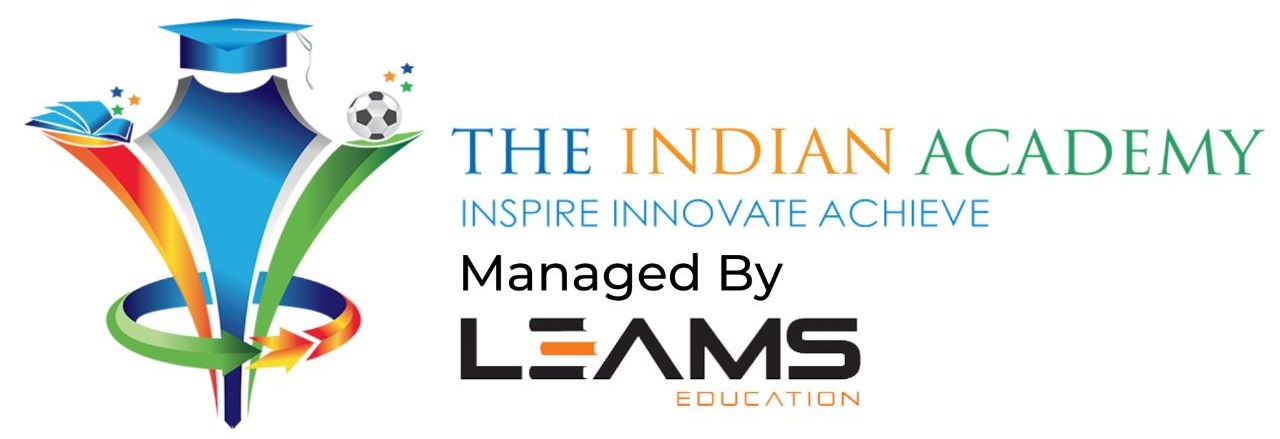Kindergarten Curriculum 2024-25
Pre KG : 3 – 4 years
Kindergarten 1 : 4 – 5 years
Kindergarten 2 : 5 – 6 years
- The kindergarten curriculum is based on age specific learning goals and has been designed keeping in view the educational trends and needs of children.
- A thematic approach is adopted to foster learning across the curriculum, placing an emphasis on developing key skills.
- The curriculum is child oriented, focusing on play-based learning and individual personalities.
- The integration of all the areas of learning provides ample opportunities for children to make connections between their experiences.
- The curriculum for our little learners is based on Early Learning Goals that need to be attained by the end of kindergarten.

The integration of all the areas of learning provides ample opportunities for children to make connections between their experiences. Keeping the international standards in mind. The curriculum for our little learners is based on early learning goals that need to be attained by the end of Kindergarten. This assessment pattern has been adapted successfully to provide the necessary range and balance. The curriculum framework gives a detailed view of the concepts that are being covered in all the seven areas of teaching:

INSTRUCTIONAL TIME
| CLASSES | NO.OF PERIODS | APPROXIMATE TIME OF STUDY PER WEEK |
|---|---|---|
| Communication, Language & Literacy | 5 | 3 hours 20 minutes |
| Mathematics | 4 in KG2 and 5 in KG1 | 2 hours 40 minutes |
| Understanding the World | 3 | 2 hours |
| Arabic | 1 in KG2 | 40 minutes |
| Swimming | 1 | 40 minutes |
| Music | 1 | 40 minutes |
| Kinder Discovery | 1 | 40 minutes |
| Free Flow that includes Sand/Water play and Gardening | 1 | 40 minutes |
| Assembly that includes Mass PE | 1 | 40 minutes |
| Pupil Enrichment Programme | 1 | 40 minutes |
| Play Pen | 1 | 40 minutes |
In addition we also have time allotted for – Self-Registration, assembly, Brain Gym and Circle time
Self-Registration- Students mark their own attendance in class with our Self Registration resources.
Circle time- It is an important time for students to interact with one another and develop positive relationships between teacher and students.
Brain gym- We boost our child’s cognitive skills with a few exercises.
Assembly- Every Monday students assemble for Mass PE and witness the special assembly presented by different classes.
Assessment
In Kindergarten it is an ongoing Assessment which plays an important part to recognize children’s progress, understand their needs, and to plan activities and support. It helps teachers communicate important milestones in students’ development to parents and provides opportunity for teachers and parents to work together to support children as they grow
Assessments at this stage involves continuous observation of children while they are at task for example reading, writing, working with blocks, puzzles, behaviour in small groups while they are at sand play, water play, free flow and so on. The students’ progress is tracked through skill tracker. The teacher records their observation in Journals, Anecdotes, one note and monitors continuously to see if the students have achieved their set targets.The students’ progress is tracked through skill tracker.

External Assessment in KG
Baseline
Baseline measures students’ progress during their two years in school and allows teachers to assess Language and communication, Literacy and Mathematics.
Baseline Progress (KG 1)
The assessment is in two parts
- Letter sound knowledge
- Early word reading
- Mathematics
- A single assessment covering a range of skills and knowledge at an age appropriate level
KG 2 ( PTM & PTE )
Language is assessed through a range of expression and comprehension questions based mainly on vocabulary. Literacy is assessed through an assessment of phonics awareness.
Math is assessed though an assessment of number system and number relations.
